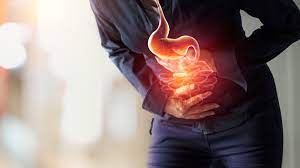How to Lower Cholesterol Without Taking Medication
Consume fewer saturated fats
Saturated fats generally stay solid at room temperature whereas unsaturated fats are usually liquid.
Dietary sources of saturated fats include:
- red meat
- pork
- chicken with the skin on
- butter
- cheese and other dairy products
A diet high in saturated fats may raise a person’s LDL cholesterol levels. Excess LDL cholesterol can accumulate and form hard deposits in the arteries, which may lead to a condition called atheroselerosis.
Consume more monounsaturated fats
Vegetables, nuts, and fish are rich in monounsaturated fats. These fats take the form of liquids at room temperature.
Good sources of monounsaturated fats include:
- avocados
- nuts, such as almonds, peanuts, and Brazil nuts
- seeds
- vegetable oils, such as olive, peanut
consuming a diet high in a monounsaturated fat called oleic acid can result in lower LDL and total cholesterol levels than a diet that was higher in saturated fats and lower in monounsaturated fats. Oleic acid had no effect on the levels of triglycerides or HDL cholesterol in the blood.
Eat more polyunsaturated fats
Polyunsaturated fats include omega-3 and omega-6 fatty acids. Consuming these fats in moderation can reduce LDL cholesterol without affecting HDL cholesterol levels.
Dietary sources of polyunsaturated fats include:
- walnuts
- fish, such as salmon, tuna, and trout
- plant oils, such as soybean, corn, and sunflower oils
Evidence suggesting that diets rich in polyunsaturated fats from fish oil may prevent some mechanisms of arrhythmia, which is an irregular heartbeat, and promote overall heart health.
It is important to balance the intake of omega-6 fatty acids with that of omega-3 fatty acids. Consuming too many omega-6 fatty acids may cause adverse health effects.
Exercise regularly
Studies show that regular exercise can help lower bad cholesterol levels and raise good cholesterol levels.
People new to exercise may want to start with lower intensity activities and gradually build the intensity of their workouts. Performing high-intensity exercises without proper training or supervision can lead to injuries.
People can incorporate regular exercise into their lives by walking, jogging, cycling, or doing resistance exercises with light weights.
People with cardiovascular disease or other heart problems should consult a doctor before participating in intense physical activities.
Summary
People can naturally lower their cholesterol levels through dietary and lifestyle changes. Replacing trans fats with monounsaturated and polyunsaturated fats can help lower levels of LDL cholesterol and raise levels of HDL cholesterol.
Other ways to naturally lower cholesterol include eating more soluble fiber and exercising regularly.




